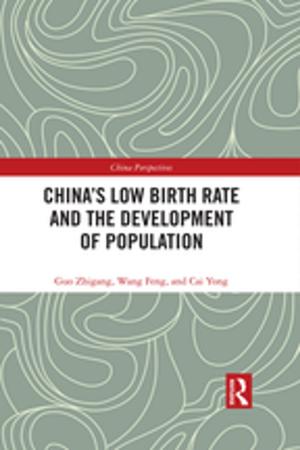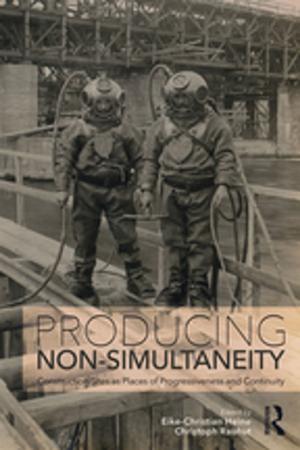Learning from the West?
Policy Transfer and Programmatic Change in the Communist Successor Parties of East Central Europe
Nonfiction, Social & Cultural Studies, Political Science, Government, Communism & Socialism, International, International Relations| Author: | ISBN: | 9781317983682 | |
| Publisher: | Taylor and Francis | Publication: | February 4, 2014 |
| Imprint: | Routledge | Language: | English |
| Author: | |
| ISBN: | 9781317983682 |
| Publisher: | Taylor and Francis |
| Publication: | February 4, 2014 |
| Imprint: | Routledge |
| Language: | English |
Learning from the West? brings insight into political life after the collapse of communism and the fall of the Iron Curtain in the late 1980s.
For Communist parties and their successors (CSPs), the challenge was perhaps the greatest – to redefine themselves within new, ‘westernised’ political systems. As these parties sought to adapt their programmatic appeals to their new environments, they searched for policies from abroad that could fit these new political structures.
The political parties of Western Europe provided a rich range of programmes from which policies could be drawn. This book analyses how, to what extent and under what conditions external influences came to bear on the programmatic development of CSPs. It argues that while some parties remain neo-communist in orientation, growling about the evils of capitalism on the far-left of their respective political systems, others have developed into social democratic actors, embracing programmatic ideals that often bear a strong resemblance to those of centre-left actors in Western Europe.
This book was previously published as a special issue of The Journal of Communist Studies and Transition Politics.
Learning from the West? brings insight into political life after the collapse of communism and the fall of the Iron Curtain in the late 1980s.
For Communist parties and their successors (CSPs), the challenge was perhaps the greatest – to redefine themselves within new, ‘westernised’ political systems. As these parties sought to adapt their programmatic appeals to their new environments, they searched for policies from abroad that could fit these new political structures.
The political parties of Western Europe provided a rich range of programmes from which policies could be drawn. This book analyses how, to what extent and under what conditions external influences came to bear on the programmatic development of CSPs. It argues that while some parties remain neo-communist in orientation, growling about the evils of capitalism on the far-left of their respective political systems, others have developed into social democratic actors, embracing programmatic ideals that often bear a strong resemblance to those of centre-left actors in Western Europe.
This book was previously published as a special issue of The Journal of Communist Studies and Transition Politics.















